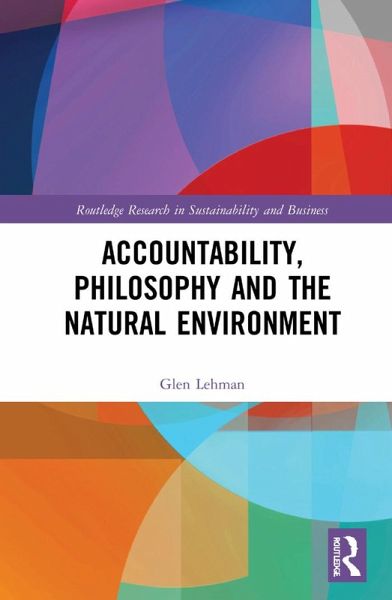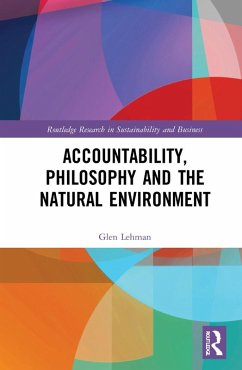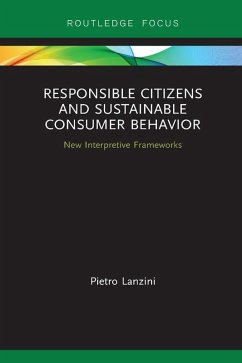
Accountability, Philosophy and the Natural Environment (eBook, ePUB)
Versandkostenfrei!
Sofort per Download lieferbar
51,95 €
inkl. MwSt.
Weitere Ausgaben:

PAYBACK Punkte
26 °P sammeln!
Using a philosophical and interdisciplinary approach, this book looks at how accountability can provide solutions to our current environmental and global political problems. When a social system has external elements imposed upon it, or presented to it, political problems are likely to emerge. This book demonstrates that what is needed are connecting social elements with a natural affinity to bring people together despite their differences.This book is different from others in the field. It provides new insights by critiquing the extant understandings of accountability and expands the possibil...
Using a philosophical and interdisciplinary approach, this book looks at how accountability can provide solutions to our current environmental and global political problems. When a social system has external elements imposed upon it, or presented to it, political problems are likely to emerge. This book demonstrates that what is needed are connecting social elements with a natural affinity to bring people together despite their differences.
This book is different from others in the field. It provides new insights by critiquing the extant understandings of accountability and expands the possibilities by building on Charles Taylor's philosophies. Central to the argument of the book are perspectives on authenticity and expressivism which are found to provide a radical reworking of our understanding of being in the world, and a starting point for rethinking the way individuals and communities ought to be dealing politically with accountability and ecological crises. The argument builds to an accountability perspective that utilises work from interpretivism, liberalism, and postmodern theory.
The book will be of interest to researchers in environmental philosophy, critical perspectives on accounting, corporate governance, corporate social reporting, and environmental accounting.
This book is different from others in the field. It provides new insights by critiquing the extant understandings of accountability and expands the possibilities by building on Charles Taylor's philosophies. Central to the argument of the book are perspectives on authenticity and expressivism which are found to provide a radical reworking of our understanding of being in the world, and a starting point for rethinking the way individuals and communities ought to be dealing politically with accountability and ecological crises. The argument builds to an accountability perspective that utilises work from interpretivism, liberalism, and postmodern theory.
The book will be of interest to researchers in environmental philosophy, critical perspectives on accounting, corporate governance, corporate social reporting, and environmental accounting.
Dieser Download kann aus rechtlichen Gründen nur mit Rechnungsadresse in A, B, BG, CY, CZ, D, DK, EW, E, FIN, F, GR, HR, H, IRL, I, LT, L, LR, M, NL, PL, P, R, S, SLO, SK ausgeliefert werden.













